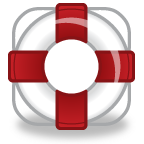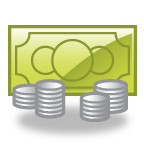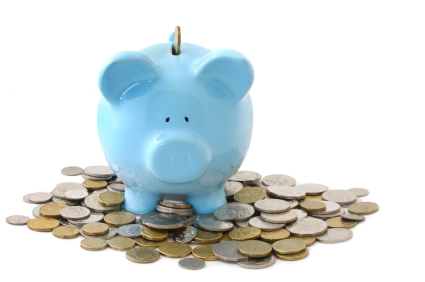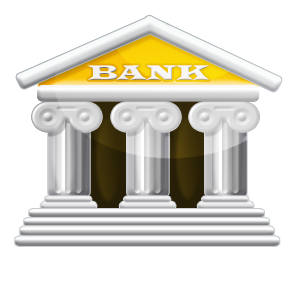1 . Earn high interest with an online savings account.
. Earn high interest with an online savings account.
You can earn four times the national savings rate by opening an online savings account. Many online banks have a $1 minimum deposit and charge no annual fees.
Not only do you want a great rate, but you want a strong bank – see a list of strong banks and money market rates. Online money market accounts are FDIC insured and allow you to transfer money back and forth to your traditional checking account free.
If you want to see a list of banks that offer high yield savings accounts click here
One feature that is especially useful for those of us who struggle to consistently put aside money is the automatic savings plans offered by various banks like ING Direct, AmTrust Direct, and others.
An automatic savings plan allows you to specify an amount to be transferred from your checking account to your online savings account on a regular basis.
I prefer weekly transfers because it’s less likely to cause my checking account to go into overdraft than a larger amount being transferred once a month.
2. Consider your needs vs. your wants. Think about items you purchase on a regular basis. These add up. Where can you save?
 Do you eat out at restaurants frequently?
Do you eat out at restaurants frequently?
Can you cut back on daily expenses, such as coffee, candy, soda, or cigarettes?
Do you have services you do not really need, such as cable television, a cell phone, or an expensive gym membership which is rarely used?
3. Set up a direct deposit and an automatic transfer to your savings account.
When you get paid, put a portion in an online savings account through direct deposit or automatic transfer. If you have a checking account, you can sign up to have money moved into your savings account every month. What you don’t see, you don’t miss! U.S. Savings Bonds can be purchased through payroll deduction.
4. Pay your bills on time.
This saves the added expense of:

- Late fees
- Extra finance charges
- Disconnection fees for phone, electricity, or other services
- Fees to reestablish connection if your service is disconnected
- The cost of eviction
- Repossession
- Bill collectors
5. If you use check-cashing stores regularly, you might be paying $3 – $5 for each check you cash.
This can easily add up to several hundred dollars in fees every year. Consider opening a checking account at a bank or credit union.
6. If you get a raise or bonus from your employer, save that extra money.
Since you’re not used to having that money in the first place, you certainly won’t miss it. A rainy day savings account can be a valuable asset.
7. If you have paid off a loan, keep making the monthly payments to yourself.
You can save or invest the money for your future goals.
8. If you receive cash as a gift, save at least part of it.
Have you ever heard of tithing your money? If you were to save 10-20% of your monthly checks and perhaps 50% of gift money that would equal a hefty sum when combined in savings!
9. Avoid debt that does not help build long-term financial security.
For example, avoid borrowing money for things that do not provide financial benefits or that do not last as long as the loan. Examples include: a vacation, clothing, and dinners out in restaurants. Also avoid unusually high interest cash advance loans. Examples of debt that helps build long-term financial security include: Paying for a college education (for you or your child). Buying or remodeling a house. Buying a car to get to work.
10. Save your change at the end of the day.

Take that change and deposit it into the bank (every week or month). You may find it surprising how a few cents can add up to a substantial sum of money!
11. When you get a tax refund, save as much of it as possible.
12. If your work offers a retirement plan, such as 401(k) or 403(b) plan that deducts money from your paycheck, join it!
Most employers will match up to $.50 on each dollar you contribute. The matched amount is free money!
13. If you decide to make investments, do your homework.
Three Simple Rules for Investing:
- Know what you are investing in.
- Get professional advice if you need it.
- Maintain enough money in a savings account to pay for 2-6 months of expenses in case of emergency. Make sure you have an emergency savings account before considering investing in non-deposit or non-FDIC products.
14. If you own stocks, reinvest the dividends to purchase more stocks.
 Some companies offer an easy way to do this called a Dividend Reinvestment Program (DRIP). This process increases your investment faster, similar to compounding.
Some companies offer an easy way to do this called a Dividend Reinvestment Program (DRIP). This process increases your investment faster, similar to compounding.
15. If you are interested in learning about investing, you might want to consider an investment club.
The National Association of Investment Clubs (NAIC) is the corporation that supports this investment style. Investment clubs are groups of people who work together to understand the process and value of investing even small amounts of money (as little as $5-$10).
If you currently don’t have an emergency fund, and you are in an emergency and need cash fast, you can consider a payday loan. Just make sure to pay the loan back ASAP because it will be an extremely high interest loan. As an alternative, consider getting a loan from peer-to-peer lending network Lending Club. You can get loans with rates as low as 8% there.
An ounce of savings today is worth a pound of gold tomorrow.
